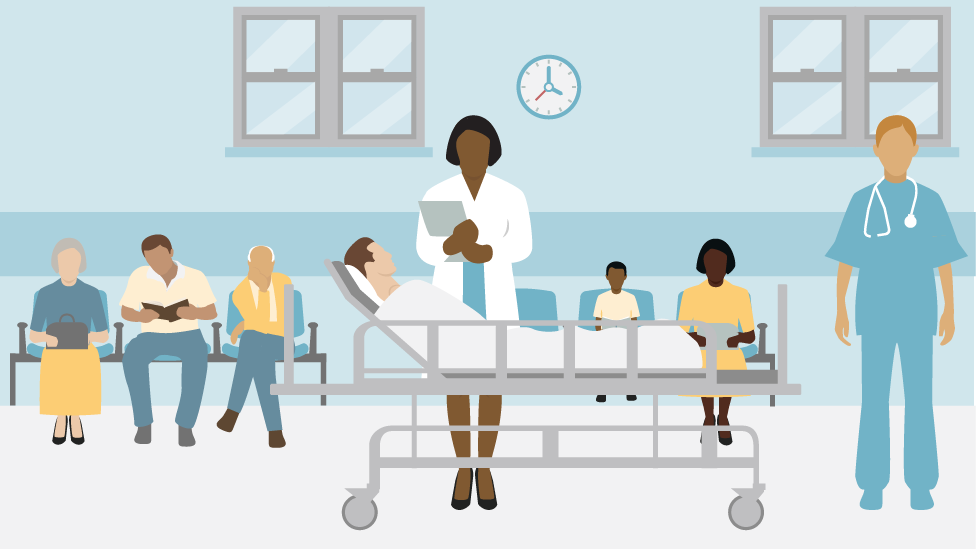My local ICB has announced the re-launch of respiratory care hubs and are desperate for staff to work extra hours.
The pay is relatively good but the response has not been great. One would think that lots of clinicians are lining up to get shifts especially with Christmas coming but that simply has not happened.
Why is that you ask? It’s simply because the day job is going to get so difficult in both primary care and hospitals, most people don’t have the heart to work more shifts.
A recent NHS staff survey showed that more than eight in 10 trust leaders (84%) were concerned about the current level of burnout across their workforce. A similar percentage (83%) were concerned about morale.
We’re going to see more flu, more covid, more exacerbations of respiratory disease and increased admissions into AMU and elderly care. Once again, the NHS is going to run on the goodwill of individual practitioners like me and you and we’re going to leave work each day feeling pretty tired.
What Happens to Our Training?
The simple answer is that our learning goes on the back-burner.
The focus becomes service provision and junior staff are often mobilised to deal with the “simpler, acute presentations"
It is harder to find senior personnel to have supervised assessments signed off.
Most places stop accepting study leave requests during this time because maximising rotas becomes priority.
Sound familiar? This has been my lived experience for a number of years and I’m sure lots of you can relate. Regardless of your profession within the MDT, each professional group becomes mobilised to a greater degree during winter and live as a student and professional becomes much harder.
The reduced ability to learn and pick up new skills during this busy period can further lower our morale. We become like robots, rattling through protocols and seeing the same presentations therefore, experiencing very little growth as clinicians. I’ve been through this year-on-year and it’s been demoralising. I really wanted to help address this issue.
Where am I going with this?
Certainly the obvious question here. There are some time effective ways in which you can help ensure that your professional development continues despite the limited time during the winter. For example:
Attend consultant or primary care teaching sessions. These are often held during lunch hours and are incredibly useful to update your knowledge.
Mould your CPD around your professional needs. If it’s history taking then attend courses or simply watch videos on this. If it’s the need to interpret ECGs then be sure to join up the relevant course. Keep things relevant!
Book half days for CPD: This is a really simple way by which you can “get around” the study leave problem. Many courses are half day courses and employers are okay with you taking a morning/afternoon off. If you’re in secondary care, you may find it easiest to book an afternoon off as consultants would probably want you present during the morning ward round.
CPD on-demand: The last 3-4 years have been immense for teaching. We have moved onto the online space and have moved away from live-only teaching. Look for courses that give you the ability to watch the content again and in your own time.
Where does Pareto sit into all of this?
Currently we’re simply exploring things. However, I can say with confidence that all of the courses we will be running has all the above in mind. For example:
CPD Musculoskeletal Masterclass (27/10/2024): This is a session delivered by trainee ACP Sikandar Kiani who initially trained as a physiotherapist. His background involves sports injuries as well as being part of the elderly care virtual ward service. You can read more here.
Minor Illness’ Masterclass (02/11/2024): This is one of our acclaimed courses where we prepare you for the incoming winter pressures. We will cover the main systemic illness’ as well as updating you about important subjects such as antibiotics prescription. You can read more here.
Arterial Blood Gas and Chest X-ray Interpretation Masterclass (17/11/2024): This is also a popular webinar for students and those working in secondary care. We will comprehensively explain ABG interpretation with examples and case studies as well as simplifying chest x-ray interpretation. As part of this webinar you will also receive an arterial blood gases e-book written by Dr Alina Imran. You can read more here.
As part of all these webinars you will obtain:
Live AND recording of the event for you to watch again
Resources for further reading including slides/e-book
Externally accredited CPD certificate to present to you employers.
We hope that we can continue to fulfil your CPD needs.
Oh.. and Don’t Miss Out on Our Free Webinars!
Our next, FREE online professional webinar is on Tuesday 22/10/2024 on “Managing Pyrexia In Children.” This promises to be an excellent presentation on an important presentation in primary and secondary care. We will cover:
- Approach to investigating pyrexia in children including practical tips
- Viral vs bacterial infection
- Tools of the trade: traffic light system
- Referral and admission criteria in practice
- Management and complications of pyrexia in children
You can read more and book here
Website: www.paretoeducation.co.uk
Instagram: www.instagram.com/pareto_ed
Twitter: www.twitter.com/pareto_ed
Youtube: https://bit.ly/3DPm23c
Email: info@paretoeducation.co.uk





